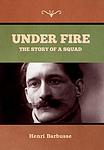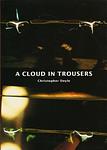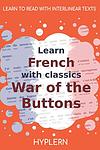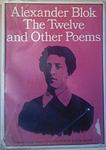The Greatest Russian, French Books From 1910 to 1919
Click to learn how this list is calculated.
This list represents a comprehensive and trusted collection of the greatest books. Developed through a specialized algorithm, it brings together 286 'best of' book lists to form a definitive guide to the world's most acclaimed books. For those interested in how these books are chosen, additional details can be found on the rankings page.
Genres
Countries
Date Range
Reading Statistics
Click the button below to see how many of these books you've read!
Download
If you're interested in downloading this list as a CSV file for use in a spreadsheet application, you can easily do so by clicking the button below. Please note that to ensure a manageable file size and faster download, the CSV will include details for only the first 500 books.
Download-
1. In Search of Lost Time by Marcel Proust
This renowned novel is a sweeping exploration of memory, love, art, and the passage of time, told through the narrator's recollections of his childhood and experiences into adulthood in the late 19th and early 20th century aristocratic France. The narrative is notable for its lengthy and intricate involuntary memory episodes, the most famous being the "madeleine episode". It explores the themes of time, space and memory, but also raises questions about the nature of art and literature, and the complex relationships between love, sexuality, and possession.
-
2. Le Grand Meaulnes by Henri Alain-Fournier
The novel centers around a mysterious and charismatic adolescent, Augustin Meaulnes, who arrives at a rural school in Sologne, France, and quickly becomes the focus of intrigue among his peers. The story is narrated by his friend, François Seurel, who recounts the adventures that ensue when Meaulnes stumbles upon a surreal estate where a lavish party is taking place, leading him to meet and fall for the enchanting Yvonne de Galais. The tale weaves themes of lost love, yearning, and the painful transition from the innocence of childhood to the complexities of adulthood, as Meaulnes becomes obsessed with finding the estate and Yvonne again, embarking on a quest that will profoundly affect all involved.
-
3. Petersburg by Andrei Bely
"Petersburg" is a symbolist novel set in the heart of Russia during the 1905 Revolution. It follows the story of a young man who is given the task of assassinating his own father, a high-ranking government official, by a radical political group. The narrative is a complex mix of politics, family drama, and philosophical introspection, all set against the backdrop of a city in turmoil. The novel is renowned for its vivid and poetic descriptions of the city itself, making Petersburg as much a character in the story as the people who inhabit it.
-
4. Alcools by Guillaume Apollinaire
"Alcools" is a collection of poems that explores various themes such as love, loss, and the passage of time. The work is notable for its innovative use of form and syntax, often eschewing traditional punctuation and capitalization. The poems are rich in imagery and symbolism, drawing on a wide range of influences from mythology to modern urban life. The collection is considered a landmark of modernist literature, reflecting the author's unique vision and distinctive poetic voice.
-
5. Locus Solus by Raymond Roussel
"Locus Solus" is an avant-garde novel that revolves around the eccentric millionaire inventor, Canterel, who invites a group of guests to visit his estate, Locus Solus. Here, he displays a series of bizarre inventions, each with a detailed backstory. The inventions include a diamond-encrusted machine that constructs intricate mosaics using human teeth, a large glass cage filled with preserved human heads that reenact key moments from their lives, and a device that uses preserved body parts to perform a grotesque ballet. The narrative is heavily detailed and surreal, creating a unique and intriguing exploration of art, life, and the human condition.
-
6. Fantômas by Marcel Allain, Pierre Souvestre
The book is a thrilling detective novel set in Paris, revolving around the character of Fantômas, a master criminal with no morals or scruples. Fantômas is a master of disguise, capable of assuming any identity at will, and his criminal activities range from petty theft to murder. The book follows the relentless pursuit of Fantômas by the determined Inspector Juve, leading to a series of exciting and suspenseful encounters.
-
7. Impressions of Africa by Raymond Roussel
In this surrealistic novel, a group of Europeans are stranded in Africa after their ship is hijacked by a local monarch. While held captive, each of the characters narrates a fantastical tale or performance, showcasing their unique talents and skills. The narrative is filled with bizarre inventions, intricate wordplay, and a dizzying array of subplots, all of which are eventually woven together in a complex and cryptic manner. The novel is a testament to the author's imagination and his ability to create a world that is both strange and captivating.
-
8. Under Fire by Henri Barbusse
"Under Fire" is a gripping first-person narrative of life in the trenches during World War I. The protagonist, a French soldier, provides an intimate and harrowing account of the physical and psychological toll of warfare. The book presents a grim picture of the war, highlighting the camaraderie among soldiers, the horror of the battlefield, the senseless loss of life, and the disillusionment of those who must endure it. The narrative is known for its stark realism and profound anti-war sentiments.
-
9. My Childhood by Maxim Gorky
"My Childhood" is a poignant and powerful autobiographical account of a young boy's life in 19th-century Russia. The narrative explores the harsh realities of growing up in a dysfunctional family, with a cruel stepfather and an uncaring mother, against the backdrop of poverty and social unrest. The protagonist's struggles, resilience, and observations provide a vivid portrayal of the societal conditions of the time, while also illuminating the human capacity for hope and perseverance in the face of adversity.
-
10. Calligrammes by Guillaume Apollinaire
"Calligrammes" is a collection of free verse poetry and typographical experiments by a French poet. The poems are noted for their use of complex visual layouts and playful language, which often incorporate elements of surrealism and cubism. The collection is also notable for its exploration of various themes, including love, war, and the passage of time. The title of the collection refers to the poet's use of words and phrases to create a visual image, or calligram, on the page.
-
11. Three plays: The hostage, Crusts, The humiliation of the father by Paul Claudel
This collection of three plays offers a deep exploration of human emotions, societal norms and familial relationships. The first play, 'The Hostage', revolves around the complexities of love and sacrifice. The second play, 'Crusts', delves into the struggles of poverty and the human spirit's resilience. The final play, 'The Humiliation of the Father', portrays the dynamics of a dysfunctional family and the impact of parental behaviour on children. Each play, while distinct in their narratives, collectively provides a profound commentary on human nature and society.
-
12. La Jeune Parque by Paul Valéry
This work is a profound and intricate poem that delves into the inner turmoil and reflections of a young woman standing at the crossroads of life. Through its dense and allusive verse, the poem explores themes of love, choice, and identity, weaving together classical mythology with personal introspection. The young woman's contemplation of her past and future, her desires, and her fears, serves as a vehicle for broader philosophical inquiries into the nature of the self, the transient nature of beauty and youth, and the search for meaning in a seemingly indifferent universe. The poem's rich imagery and complex structure have made it a landmark of modernist literature, celebrated for its linguistic innovation and its deep, resonant exploration of the human condition.
-
13. Le Coq Et L'arlequin by Jean Cocteau
This book is a notable manifesto that critiques the influence of German music on French national identity, advocating instead for a return to French musical traditions and the embrace of modernity. Written in the early 20th century, it emphasizes the importance of simplicity, clarity, and the incorporation of elements from popular culture and other arts into music. The author, a prominent figure in the avant-garde movement, calls for a rejection of Wagnerism and a celebration of French composers and artists who embody these principles. Through its vivid prose and passionate argumentation, the work seeks to inspire a cultural renaissance that redefines French music and its role in the broader artistic landscape.
-
14. The Twelve by Alexander Blok
"The Twelve" is a controversial and symbolist Russian poem that weaves together the chaotic and transformative energy of the 1917 Russian Revolution with mystical and religious elements. Set against the backdrop of a blizzard in Petrograd, the narrative follows twelve Red Army soldiers as they march through the city's streets, grappling with their purpose and the violent upheaval of the old order. The poem is renowned for its vivid imagery, complex allegories, and the provocative inclusion of a Christ-like figure amidst the revolutionary fervor, challenging readers to interpret the convergence of spiritual and political themes.
-
15. Hadji Murat by Leo Tolstoy
The novella centers on the real-life figure Hadji Murat, a 19th-century Chechen rebel commander who, after a falling out with his own leader, Imam Shamil, defects to the Russians for a chance to avenge his family. Caught between the complex military and cultural conflicts of the Russian Empire and the fiercely independent Chechen tribes, Murat's struggle for honor, survival, and revenge reflects the brutal realities of the Caucasian War. As he navigates the treacherous political landscape, his story becomes a poignant exploration of loyalty, betrayal, and the dichotomies of human nature.
-
16. A Cloud In Trousers by Vladimir Mayakovsky
This early 20th-century poetic masterpiece blends revolutionary fervor with intense personal emotions, reflecting the tumultuous era of its creation. The work is a four-part epic poem that delves into the author's passionate and tumultuous love affair, juxtaposing his individual romantic experience with broader social and political upheaval. The poet's innovative use of language, rhythm, and imagery breaks from traditional forms, mirroring the chaotic spirit of the time and the poet's desire for both personal and societal transformation. Through vivid and often jarring metaphors, the poem conveys a sense of disillusionment with love and the contemporary social order, while also expressing a fervent hope for a new and better world.
-
17. Fallen Leaves by Vasily Rozanov
"Fallen Leaves" is a collection of philosophical and autobiographical essays that delve into the author's musings on a wide range of topics, including religion, sexuality, and society. The work reflects the author's critical examination of modernity and the decline of traditional values, as well as his personal sense of isolation and disillusionment with the contemporary world. Through a series of fragmented and often controversial reflections, the author grapples with the existential challenges of his time, presenting a candid and introspective exploration of the human condition at the turn of the 20th century.
-
18. The Vatican Cellars by Andre Gide
The novel unfolds as a satirical adventure, delving into the complexities of faith, deception, and the human quest for meaning. Set against the backdrop of early 20th-century Europe, it follows the journey of Lafcadio, a young man whose paths cross with an eclectic mix of characters, including anarchists, aristocrats, and religious figures, each embroiled in their own pursuits of ideology, power, and salvation. Central to the plot is a meticulously planned hoax involving the Pope, which spirals into a series of events that challenge the characters' beliefs and intentions. Through its intricate narrative and sharp critique of societal norms, the book explores themes of morality, authenticity, and the absurdity of human endeavors.
-
19. The Vagabond by Colette
This novel follows the journey of Renée Néré, a 33-year-old divorcee who, after enduring the betrayal and abandonment of her husband, embarks on a path of self-discovery and independence through her work as a music hall dancer. Set in early 20th-century France, the narrative delves into themes of love, freedom, and the quest for personal identity against the backdrop of societal expectations. As Renée grapples with the allure of new love and the prospect of sacrificing her newfound autonomy, the story explores the complexities of the human heart and the courage required to live life on one's own terms. Through her introspective and resilient protagonist, the author offers a poignant examination of the struggles and triumphs of a woman seeking to redefine herself beyond the confines of conventional relationships.
-
20. State And Revolution by Vladimir Il’ich Lenin
This seminal political theory text delves into the role of the state in society and the necessity of proletarian revolution to dismantle the bourgeois state apparatus. It argues that the working class must seize state power, dismantle the existing state machinery, and establish a dictatorship of the proletariat as a transitional phase towards the creation of a classless, stateless society. The work critically analyzes the ideas of Marx and Engels on the state, while also addressing the practical aspects of revolution, including the suppression of the bourgeoisie by the proletariat. It serves as a theoretical foundation for understanding the dynamics of class struggle and the path towards socialism.
-
21. The War Of The Buttons by Louis Pergaud
The book is a charming tale of rural French schoolboys from neighboring villages who engage in mock battles, with the ultimate trophy being the buttons and belts of their defeated opponents. This rivalry, filled with youthful pride and the desire to protect one's honor, escalates as the children strategize and skirmish, all while grappling with the themes of camaraderie, tradition, and the transition from innocence to adolescence. The narrative, rich with humor and the simplicity of country life, ultimately explores the universal aspects of growing up and the bittersweet nature of childhood conflicts.
-
22. My Friend's Book by Anatole France
This narrative delves into the complexities of friendship, intellectual pursuit, and the often blurred lines between reality and the world of books. Through the lens of a protagonist who becomes deeply engrossed in his friend's literary work, the story explores themes of obsession, the impact of literature on life, and the profound connections that can form through shared intellectual endeavors. As the protagonist navigates his relationship with his friend and the book, readers are invited to reflect on the power of written words to shape our perceptions, relationships, and understanding of the world around us.
-
23. Lafcadio's Adventure by Andre Gide
The book is a philosophical tale that follows the journey of a young, innocent man who is thrust into a world of temptation and moral ambiguity. As he travels, he encounters various characters and experiences that challenge his understanding of virtue, vice, and the complexities of human nature. The protagonist's adventure becomes a metaphor for the quest for self-knowledge and the struggle to reconcile the purity of one's inner self with the often-corrupting influences of society and personal desire. Through his experiences, the book explores themes of innocence, experience, and the search for authenticity in a world that often rewards artifice and compromise.
-
24. Poems Of Anna Akhmatova by Anna Akhmatova
This collection presents a poignant anthology of works by a prominent Russian poet, whose verse captures the complexities of life and love against the backdrop of the early 20th century, including the turmoil of the Russian Revolution and the hardships of the Stalinist era. The poems are marked by their lyrical intensity, emotional depth, and personal reflection, often weaving together themes of individual suffering, resilience, and the enduring power of the human spirit. The poet's distinctive voice and masterful use of language have cemented her place as a significant figure in the literary canon, offering readers a deeply moving and introspective journey through her experiences and observations.
-
25. The Twelve And Other Poems by Aleksandr Blok
"The Twelve and Other Poems" is a collection that captures the tumultuous spirit of early 20th-century Russia through a blend of lyrical and narrative poetry. The centerpiece of the collection is a long poem that portrays the chaotic and transformative energy of the Russian Revolution, as seen through the eyes of twelve Red Army soldiers marching through the snowy streets of Petrograd. The work is known for its complex interplay of themes, including revolution, love, betrayal, and redemption, and it employs a range of poetic styles, from the symbolic to the realistic. The additional poems in the collection further explore the psychological and societal upheavals of the time, offering a poignant reflection on a nation in the throes of profound change.
Reading Statistics
Click the button below to see how many of these books you've read!
Download
If you're interested in downloading this list as a CSV file for use in a spreadsheet application, you can easily do so by clicking the button below. Please note that to ensure a manageable file size and faster download, the CSV will include details for only the first 500 books.
Download



















